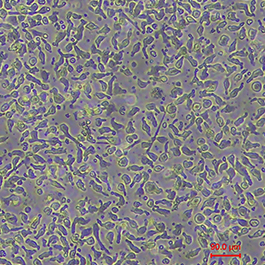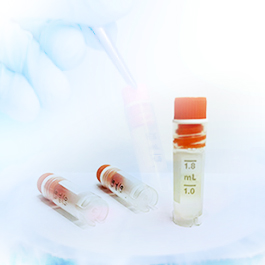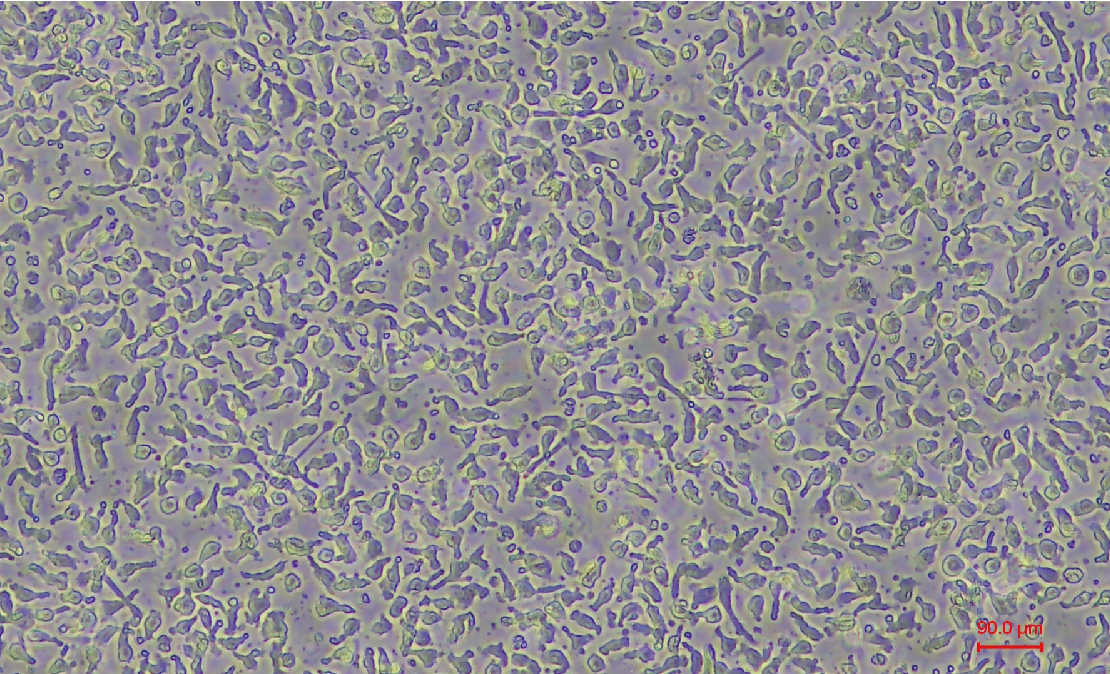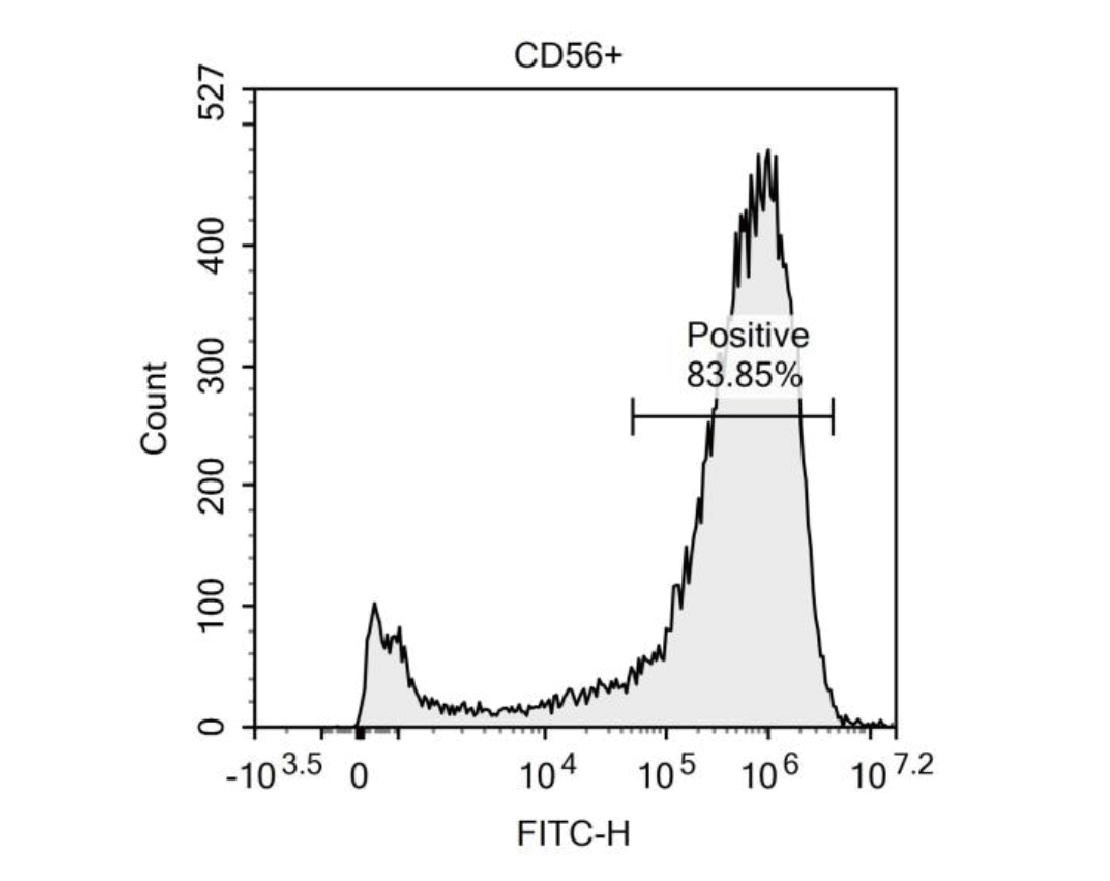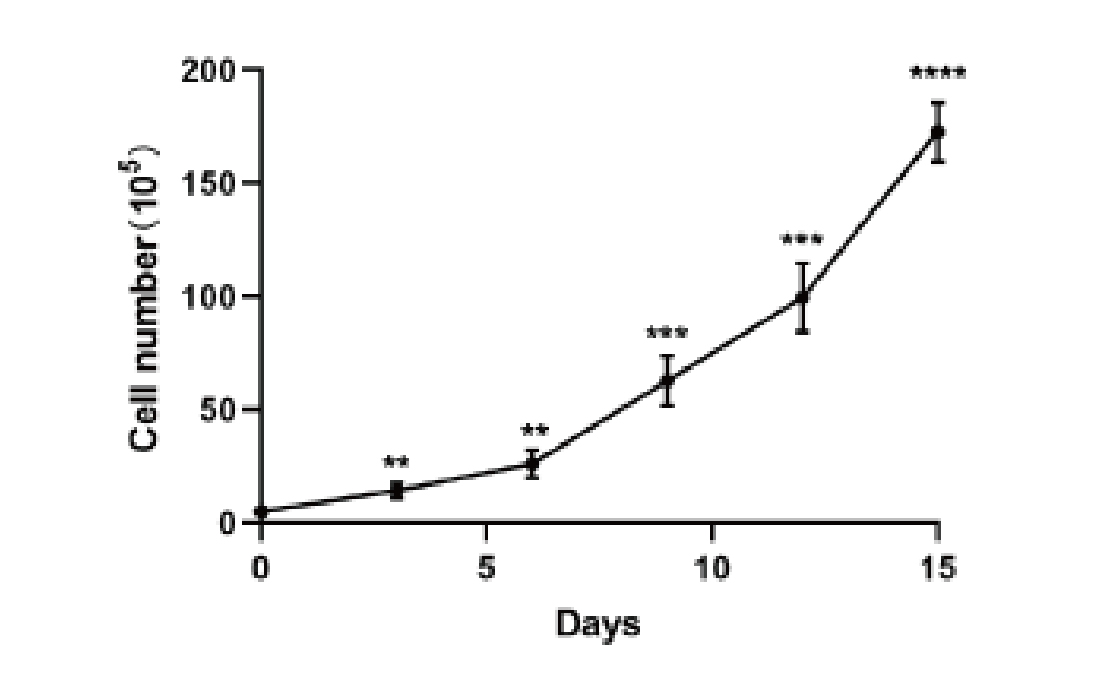Natural killer (NK) cells are a critical component of the innate immune system, characterized by their ability to identify and rapidly eliminate cells infected by viruses, transformed by cancer, or compromised by stress without prior sensitization. These cells play a significant role in immune surveillance and have been the focus of extensive research due to their potential in cancer immunotherapy.
The iNK from iCells International, derived from human iPSCs, are a highly pure population of research-grade NK cells offered in commercial quantities and possessing key features ideal for research and therapeutic development.
1. High Purity: Ensuring a predominantly NK cell population is essential for accurate experimental outcomes, allowing researchers to study the specific mechanisms of NK cell function without the interference of other cell types.
2. Functional Maturity: iNK cells exhibit functional properties similar to primary NK cells, including the ability to produce cytokines, chemokines, and directly kill target cells through mechanisms such as antibody-dependent cellular cytotoxicity (ADCC) and natural cytotoxicity.
3. Customizability: The versatility of iNK cells is enhanced by the ability to derive them from a wide range of donor iPSC lines, facilitating the study of genetic diversity and the development of personalized medicine strategies.
4. Scalability: The capacity to produce large quantities of iNK cells is crucial for high-throughput screening, enabling the rapid evaluation of potential immunotherapies and the advancement of drug discovery.
5. Immunotherapy Potential: iNK cells have shown promise in cancer immunotherapy, particularly in strategies involving the enhancement of NK cell cytotoxicity, the use of chimeric antigen receptor (CAR)-modified NK cells, and the exploration of combination therapies with other immunomodulatory agents.
6. Research Applications: Beyond cancer immunotherapy, iNK cells are valuable tools for studying the basic biology of the immune system, understanding the mechanisms of viral infections, and developing treatments for a range of immune-related diseases.



